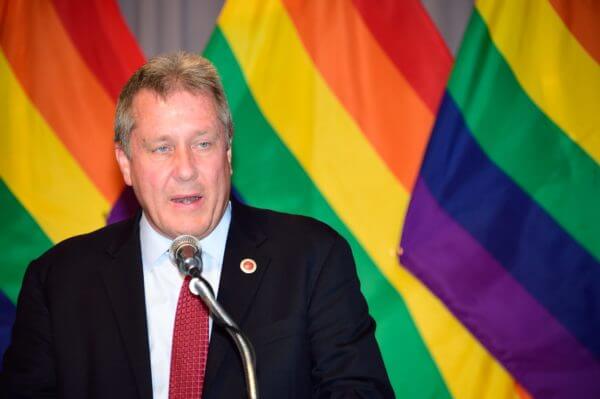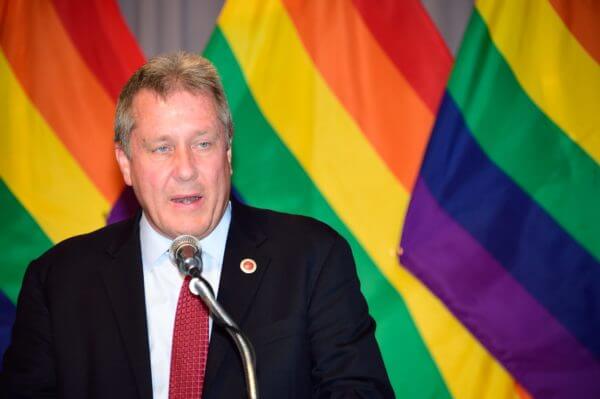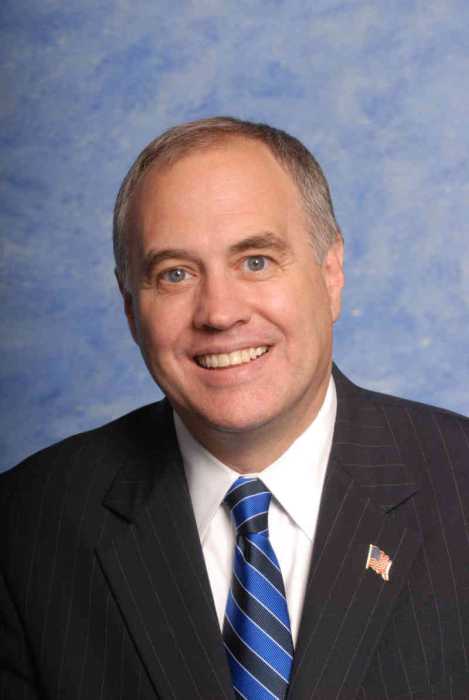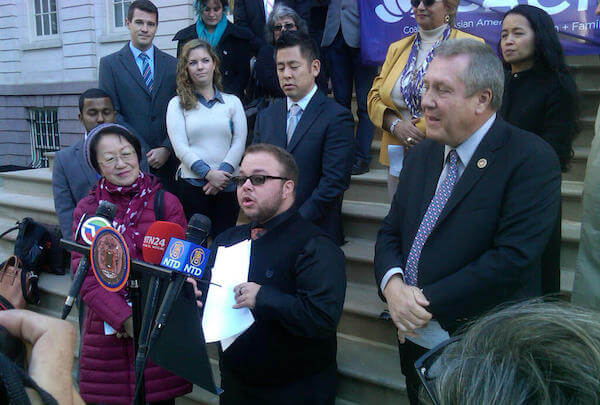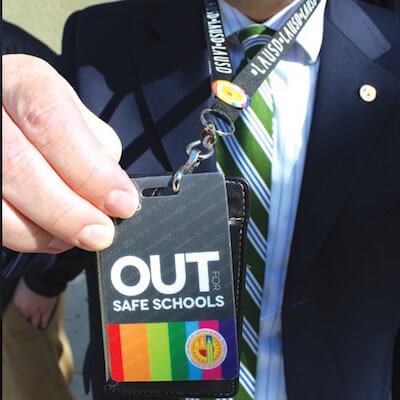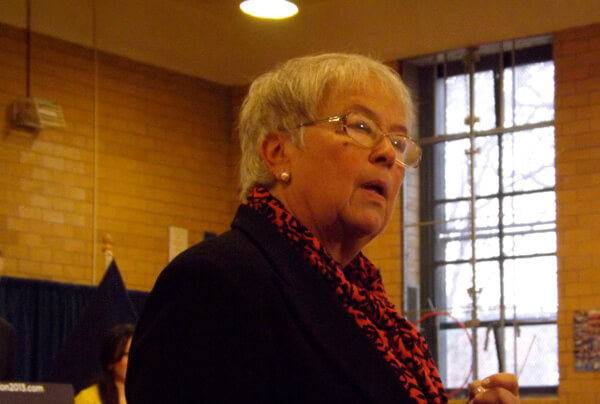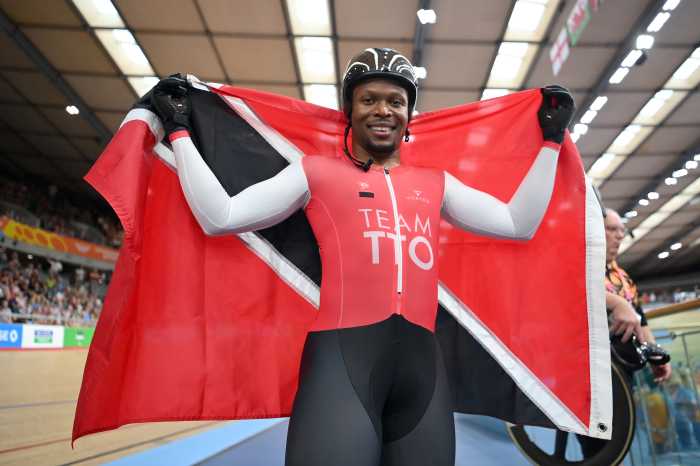City Councilmember Daniel Dromm, who chairs the Council's Committee on Education. | DONNA ACETO
The real tragedy of the terrible bullying-related killing that occurred two weeks ago at the Urban Assembly for Wildlife Conservation in the Bronx is that it seems to have been completely preventable. In the wake of this sad incident, there are numerous questions about the details of what happened. This much is clear, however: the New York City Department of Education (DOE) needs to do better to ensure the safety of all students but especially LGBTQ students, since research shows they are the most frequent targets of bullying.
As the chairperson of the New York City Council’s Committee on Education, I am tasked with overseeing the DOE. I have worked collaboratively with the administration to address the DOE’s lack of resources dedicated to tackling entrenched homophobia and transphobia. The Council has allocated hundreds of thousands of dollars for an LGBTQ community liaison and other resources for LGBTQ students, yet the DOE must allocate additional resources to meet these urgent student needs.
I held a hearing in recent weeks on Gender Sexuality Alliances (GSAs), organizations that provide safe places for students to meet and support each other and talk about issues related to sexual orientation and gender identity and expression. Inspiring student activists from the East Side Middle School in Manhattan spoke about the benefits of having a robust GSA with strong faculty and administrative support.
PERSPECTIVE: Educating Our Youth
Last year, I was happy to recognize the work of the primary students at the Earth School in the East Village, who launched a successful campaign to convince their favorite educational app to include LGBTQ history.
Parents and students at LaGuardia High School of Music & Art and Performing Arts on the Upper West Side took a stand to change their school’s bathroom policy to make transgender and gender-nonconforming students more comfortable. (Though the schools are making efforts to designate at least one all-gender restroom in all schools, the city overall refuses to publicize and enforce the all-gender bathroom law, which I advanced.)
These successes highlight a depressing point: Why are LGBTQ students in these and a smattering of other schools allowed to learn in a secure environment with supports in place, while those at the Urban Assembly School are left to flounder in settings rife with unchecked discrimination and violence? Why must students who are brave enough to step forward to improve their school climate not fully supported? (I know, and very much admire, a transgender boy who had to approach seven teachers before finding one who was willing to help him start a GSA.)
Critically for this discussion, why do teachers not feel supported in addressing these issues? I will be asking all of these questions at a hearing at the end of the month (October 30 at 10 a.m.) to examine efforts in the aftermath of the tragedy and push for reform.
We cannot solve this problem by sticking metal detectors in our schools and calling it a day. In fact, the presence of metal detectors makes the school climate worse, as it sends a powerfully negative impression about expectations of students. Metal detectors cannot stop bullying.
Change must start at the top. The safety of LGBTQ students and others should never be at the discretion of skittish administrators who may be dealing with their own homophobia and transphobia. The DOE must enforce guidelines and offer resources for all schools.
LGBTQ students at the Urban Assembly and other schools are forced to endure the unendurable: constant violence and discrimination at the hands of peers while apathetic adults stand by, their shameful non-response emboldening the students who are in reality in charge of the situation.
Why does a child have to die for adults to pay attention? Why are bullied students presented with two intolerable options: suffer in silence or take matters into their own hands?
Rather, all students should be provided with two options: join the strong efforts their schools are pursuing to improve school climate or, if there are problems, turn to the safe, supportive, and nurturing adults around them for assistance.
City Councilmember Daniel Dromm, chairperson of the Council’s Committee on Education and a former school teacher, represents District 25 in Queens.

